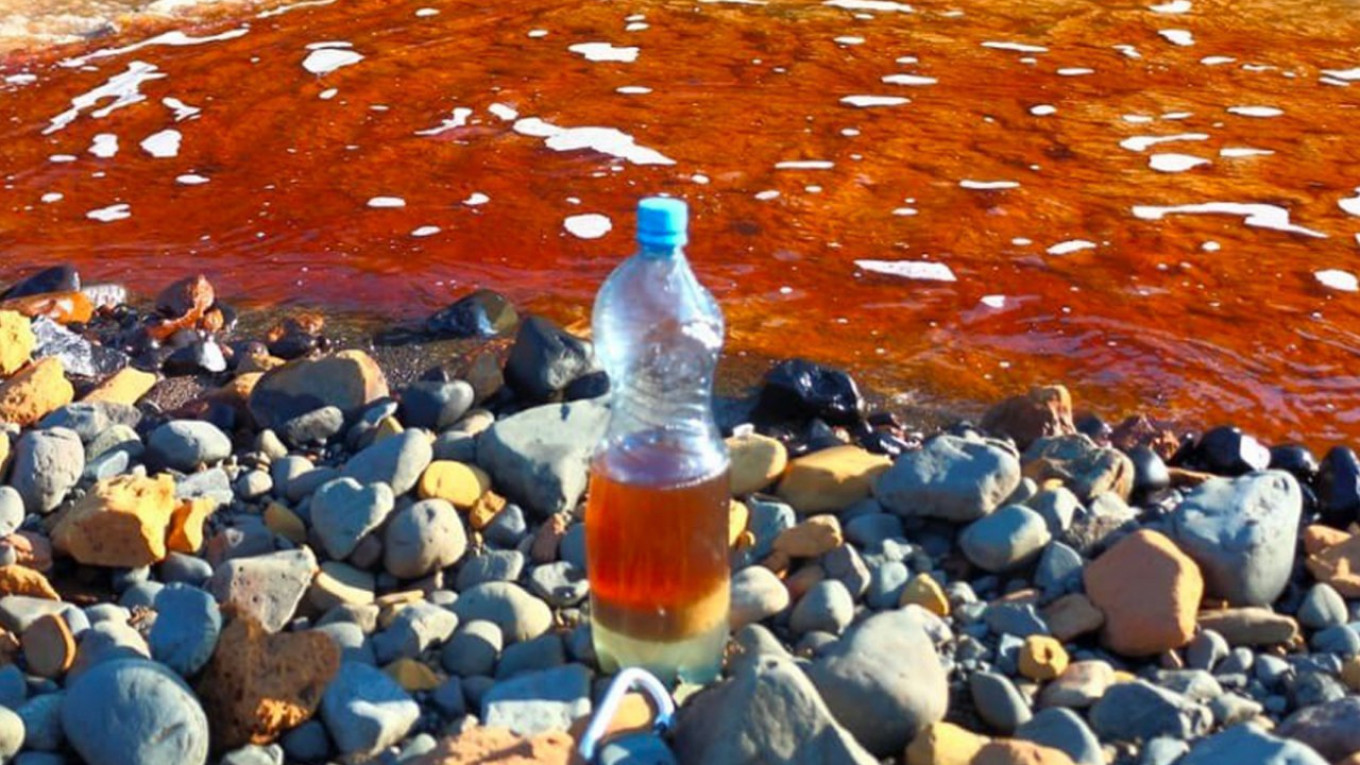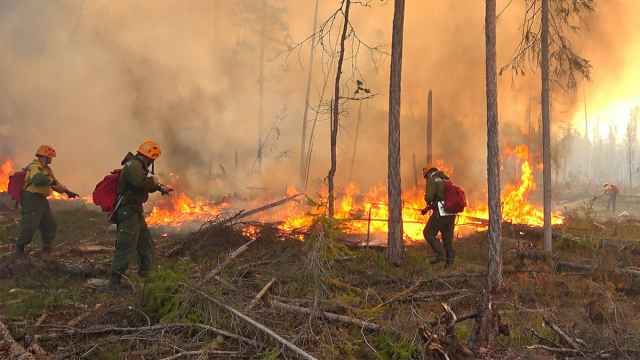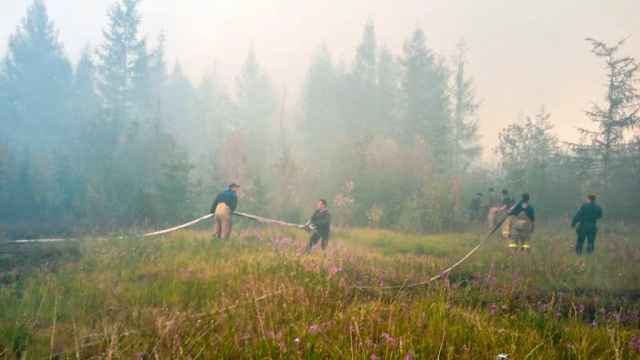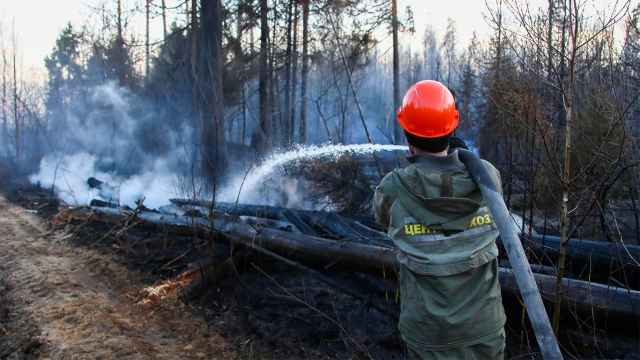Local authorities in Siberia have declared a state of emergency after 20,000 metric tons of diesel fuel seeped into a river sparking concerns from environmentalists.
The World Wildlife Fund environmental group on Tuesday praised local efforts to contain the spill with a floating dam, blocking dangerous pollutants from flowing into a lake near the Arctic city of Norilsk.
Satellite images published by the WWF showed large red spillages in the Ambarnaya river and residents nearby posted videos on social media showing polluted water.
The spill was caused last week by a leaking diesel fuel tank at a thermal power plant several kilometers west of Norilsk.
Russian mining conglomerate Norilsk Nickel, which owns the facility, said the tank was damaged when supporting pillars that had "held it in place for 30 years without difficulty" began to sink.
Norilsk is constructed on permafrost and its infrastructure is threatened by melting ice caused by climate change.
Norilsk Nickel has been guilty of spillage in the past. In 2016 it admitted pollutants from a "filtration dam" at its plant washed into another local river, coloring it bright red.
It was fined less than $1,000 for the incident.
The Prosecutor of the Krasnoyarsk region said Tuesday a state of emergency had been declared locally and opened an investigation into fuel leakage.
The Investigative Committee, which probes serious crimes, said at least 20,000 metric tons of oil had spread over 350 square meters.
Norilsk Nickel company director Sergei Lipin said 500 cubic meters of pollutants had been removed by a team of 90 workers whose cleanup efforts were ongoing.
The state environmental watchdog said groundwater was not polluted and the WWF called on it to monitor water quality downstream to prevent toxic products from spreading to nature reserves.
A Message from The Moscow Times:
Dear readers,
We are facing unprecedented challenges. Russia's Prosecutor General's Office has designated The Moscow Times as an "undesirable" organization, criminalizing our work and putting our staff at risk of prosecution. This follows our earlier unjust labeling as a "foreign agent."
These actions are direct attempts to silence independent journalism in Russia. The authorities claim our work "discredits the decisions of the Russian leadership." We see things differently: we strive to provide accurate, unbiased reporting on Russia.
We, the journalists of The Moscow Times, refuse to be silenced. But to continue our work, we need your help.
Your support, no matter how small, makes a world of difference. If you can, please support us monthly starting from just $2. It's quick to set up, and every contribution makes a significant impact.
By supporting The Moscow Times, you're defending open, independent journalism in the face of repression. Thank you for standing with us.
Remind me later.






